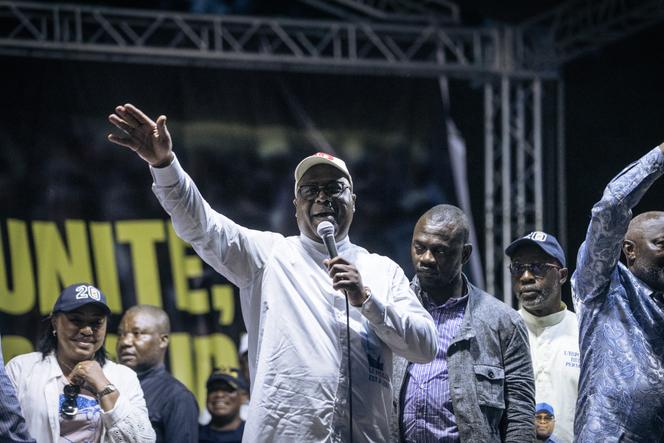


Félix Antoine Tshisekedi, "Fatshi" to his supporters and "Number 20" to his voters, was easily re-elected as president of the Democratic Republic of Congo (DRC), with 73.34% of the vote (with a turnout of 43%), according to the provisional results announced on Sunday, December 31 by the Independent National Electoral Commission (CENI). A real tidal wave, according to the figures broadcast on the giant screens of the Bosolo – "truth" in Lingala – counting center in Kinshasa, that swept in at the end of a chaotic election. A huge gap of 55 points separated him from Moïse Katumbi, the former governor of Katanga who was presented as his most serious challenger.
Five years after his already controversial first election, Fatshi consigned his rivals to the status of extras. Despite this result, his success will never have the purity of a diamond. Accusations of an "electoral coup d'état" made by a fragmented opposition have little basis in fact. The head of state enjoys genuine popularity with a large proportion of the Congolese population. However, the suspicion that he orchestrated electoral blunders of unprecedented proportions is likely to be a millstone around his neck. On the eve of the vote, some observers and diplomats were still wondering whether the ballot, which had been allocated a budget of over $1 billion, could be held on the scheduled day, given the mounting signs of logistical disruption. Six days after the official close of voting, polling stations were still open in the most remote corners of the huge country, having eventually been provided with the necessary electoral materials. The DRC is as vast as Western Europe, but without its transport and telecommunications infrastructure.
The powerful Catholic Church, often critical of those in power, spoke at Christmas mass of a "gigantic organized electoral disorder," without saying for whose benefit. All eyes turned to the presidency. Jacquemain Shabani, the head of state's campaign manager, readily acknowledged the malfunctions, but felt that "they affected all the candidates indiscriminately."
Without providing any tangible evidence to date, nine of the main opposition candidates "categorically rejected this sham election" even before the results were announced on Sunday. The opposition suspects fraud in the "voting machines," the touch-screen tablets installed in the polling booths on which voters chose their candidates. Katumbi's team claimed that there was a form of "ballot box stuffing 2.0." Forget the ballot papers illegally slipped into the ballot boxes − it's now a case of digital votes being introduced into the system upstream, thereby becoming, in the words of a fellow journalist, "a stealing machine" rather than a voting machine. "It's technically feasible," said an expert in electoral processes, "and it's possible to enhance the results, but it's hard to explain such a gap [in points] between first and second place."
You have 75% of this article left to read. The rest is for subscribers only.
